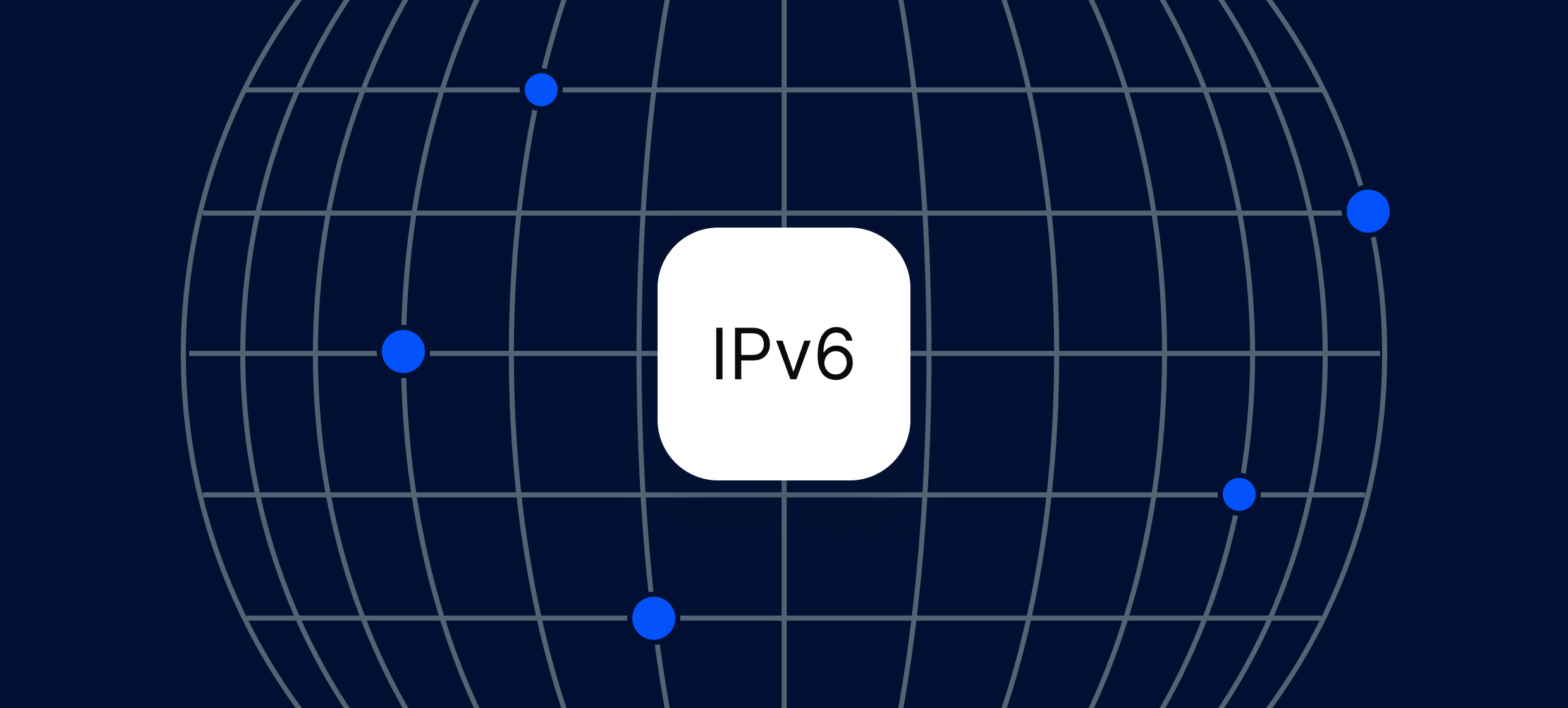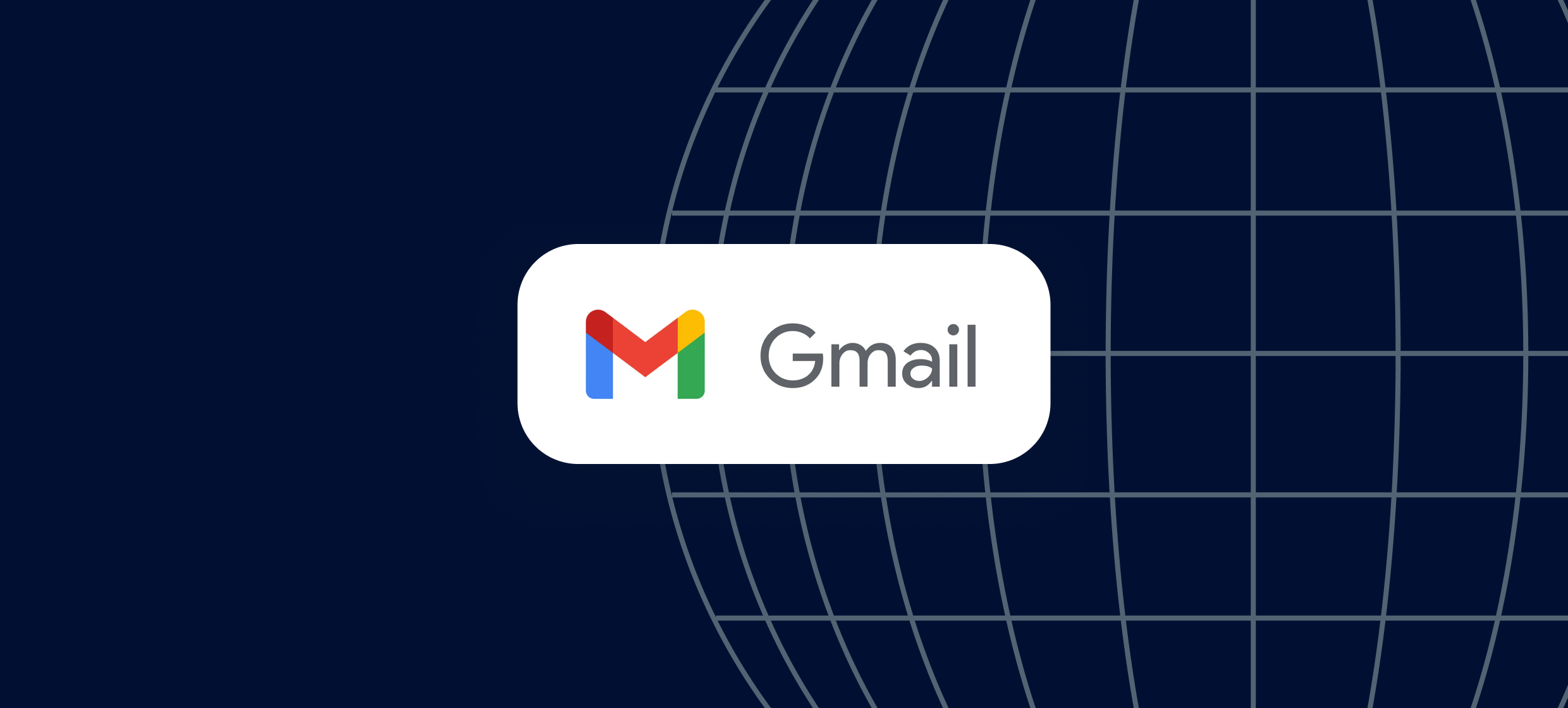IPv6 residential proxies have become a go-to proxy solution for data scraping, SEO monitoring, social media management, and more. Built on the newer IP version 6, these proxies allow all internet users to bypass geo-restrictions, avoid CAPTCHAs, and reduce bans easily.
Unlike datacenter proxies, which rely on cloud servers, IPv6 residential proxies offer a smarter, more reliable way to access data and services securely. But what exactly are IPv6 residential proxies? Let's dive in.
What Are IPv6 Residential Proxies?
Internet Protocol Version 6 (IPv6) residential proxies use real IP addresses assigned by Internet Service Providers (ISPs) to actual devices. This means that in the eyes of the internet, anyone using an IPv6 residential proxy will look like any other user.
The primary purpose of an IPv6 residential proxy is to provide speed, performance, efficiency, and online safety. Because these proxies come from real users’ devices, they appear authentic to websites, making IPv6 proxies harder to identify as proxies.
If you'd like to go deeper into the topic and learn more about what a residential proxy is, head on over to our blog, where we cover the topic extensively—and for a broader overview, see our guide to residential proxies.
Definition of IPv6 Residential Proxies
IPv6 residential proxies use IP addresses from real residential devices, like home computers, smartphones, or laptops, to mask users' IPs. This means that once you connect to a residential IPv6 proxy and open your browser of choice, you'll appear as a legit user from a different location, allowing you to easily access worldwide content.
Compared to the older IPv4, IPv6 proxies can offer much larger IP pools, enhanced security, low latency, high uptime, complete anonymity, and a vast number of unique IPS. Plus, thanks to the improved speeds of the 6th protocol, many proxy service providers, like Proxy-Cheap, also offer unlimited bandwidth.
How They Differ from Datacenter Proxies
According to Data Intelo's detailed proxy service report from 2024, which reviewed small, medium, and large businesses, residential and datacenter proxies are two of the most popular proxy types used today. Both proxy types bring unique but very different benefits. Here’s how IPv6 residential proxies compare to datacenter proxies:
- IP sourcing: Residential IPv6 proxies source all IP addresses from ISPs, while datacenter proxies generate their pool of IPs from cloud hosting providers.
- Detection rates: Residential proxy servers typically boast a much lower detection rate due to IPs being sourced from real residential devices. In contrast, while datacenter proxies can be cheaper and allow access to large IP pools, they're relatively easy to detect and get flagged by websites.
- Use cases: Residential proxies mimic real-user activity by utilizing actual IPs from residential devices, making them perfect for highly sensitive, stealth tasks and accessing geo-restricted content. On the other hand, datacenter IPv6 proxy servers are often linked to bot and automation activities.
Why Residential IPs Are Harder to Detect
The key benefit of residential IPs is that they come from real homes and devices. When you use a residential proxy and connect to a browser, you appear as a real person, making it incredibly difficult to detect that you're actually using a proxy.
This is exactly why companies and small business owners use residential IPv6 proxies to access geo-blocked content, scrape valuable public data, track SEO metrics, manage multiple accounts on social media, and verify ads without raising any alarms.
How IPv6 Residential Proxies Work
To understand IPv6 residential proxies, we should first define how proxies work. Proxies act as intermediaries between you and the internet, forwarding requests and responses while hiding your real IP address. IPv6 residential proxies follow the same logic, only they route your internet traffic through a residential device with an IP address provided by a legitimate ISP.
Additionally, IPv6 residential proxies often use a single backconnect entry, which means you connect to one endpoint, and the proxy provider rotates multiple residential IPv6 addresses behind it automatically. Each port number on this endpoint can be assigned to a specific IPv6 address, allowing you to manage your proxy details or target different locations by simply changing the proxy port.
Here’s a simple breakdown of the process:
- You send a request by visiting a website or collecting data.
- The proxy server receives the request and routes it through a residential device.
- The website receives the request and sees the IPv6 residential IP instead of your real IP address.
- The response is sent back to you through the same proxy.
IPv6 Address Structure and Allocation
All IPv6 addresses use a 128-bit structure, which results in a ridiculously large IP pool of over 340 undecillion (or 340 trillion trillion trillion) IPs. In contrast, the IPv4 pool has a capped amount of more than 4 billion IP addresses. To put it into perspective, the sheer amount of IPv6 addresses means that any single device can potentially have a trillion IPv6 addresses.
The incomprehensibly large IPv6 address pool means nearly unlimited rotation, allowing residential IPv6 proxy users to engage in high-volume tasks online without ever worrying about getting detected or banned.
Proxy Routing via Residential Devices
IPv6 residential proxies mask your IP by making it look like a connection request is coming from a different residential device. In other words, it's like asking your neighbor to use their mailbox to send letters.
Your letter will have a different address, but it will still be delivered. That's exactly how residential proxies route traffic through real people's devices, ensuring that your connection looks like any other request.
Dual Stack Support for IPv4 and IPv6
We've already established that IPv6 is becoming the gold standard, but some websites still don't support the new protocol, making IPv4 proxies incredibly important. To address this issue, some proxy service providers, including Proxy-Cheap, offer dual-stack support, which is capable of handling IPv4 and IPv6 traffic at the same time. This feature makes it possible for devices to communicate easily regardless of what IP version is used by a single user and their target server. Dual-stack proxies also often rely on network address translation (NAT) to map IPv4 addresses to IPv6 endpoints, or the other way around. If you prefer to add end-to-end encryption alongside IP masking, a complementary tool like a residential VPN can pair well with IPv6 proxies.
Translation Mechanisms: NAT64 and DNS64
There are many IPv4 servers still active today, which don't support IPv6-only device connections. NAT64 and DNS64 are two different protocols used for IPv6-only device communication with IPv4 servers. These translation mechanisms make it easier for different IP versions to communicate, resulting in a smoother browsing experience and data access for the end users.
Benefits and Use Cases of IPv6 Residential Proxies
IPv6 residential proxies deliver key benefits to individual users and large-scale businesses alike. These proxies offer faster connection speeds, broader IP availability, and improved anonymity by routing traffic through real residential devices using the latest internet protocol.
While there are many different use cases for IPv6 residential proxies, they're notably used for web scraping en masse, ad verification, SEO monitoring, social media management, and accessing geo-blocked content.
Compared to data center proxies, which can be tracked and flagged by websites, residential proxies appear as real users accessing the internet, allowing you to stay undetected while also avoiding IP bans and CAPTCHAs.
Proxy service providers like Proxy-Cheap offer not only some of the most reliable residential IPv6 proxies on the market but also the best prices. Additionally, we offer over 50 billion static residential proxies with unlimited traffic for up to 1 Gbps, ensuring maximum high-volume task performance and minimal latency.
Unlimited IP Pool with 128-bit Addressing
The most important benefit of IPv6 is that the newer protocol offers a vast pool of IP addresses compared to IPv4, which has a limited amount. IPv6 uses 128-bit addressing, allowing a whooping 340 undecillion (or 340.28 billion × 10³⁰) amount of unique IP addresses.
Proxy-Cheap made sure to tap into this massive IPv6 pool to offer our users the ability to choose whatever proxies they want from the available IP addresses list at lower costs. Plus, if you choose to purchase multiple residential IPv6 proxies, we apply bulk discounts, making Proxy-Cheap an incredibly cost-effective solution.
Bypassing Geo-restrictions and IP Bans
While we can easily buy and sell items worldwide, when it comes to accessing content from a specific country online, the process becomes challenging. For example, some streaming services like Netflix display different content for separate countries due to local policies, while travel agencies show different prices for the same trips.
Proxy-Cheap's IPv6 residential proxies allow users to easily access content in the US or South Korea, or for testing global ad placement, all while bypassing bans and filters.
Improved Anonymity for Web Scraping
Developers and marketers can access global locations freely when using IPv6 residential proxies. Scraping the web has become a cornerstone of business. This is a crucial benefit that makes data truly accessible to anyone without getting unfairly banned online. Furthermore, rotating residential proxies on IPv6 further reduce detection rates.
Use in Ad Verification and SEO Monitoring
SEO research is the background of any business, making it possible for companies and agencies to develop accurate strategies for company establishment and growth. With IPv6 residential proxies, marketing agencies and brands can monitor campaigns without any bias. SEO specialists who use them are able to track SEO metrics that reflect real-world conditions, not just a single location.
Current Limitations and Market Availability
Although IPv6 is the future of internet addressing, the adoption of IPv6 residential proxies remains limited across the market. Most proxy providers today either lack the technical know-how and infrastructure or rely too much on third-party solutions. This can result in unstable connections, limited IP pools, and restricted geo coverage.
Moreover, quite a lot of proxy providers still heavily focus on IPv4 simply because many systems support this protocol, leading to its widespread compatibility. While IPv6 is the next big thing, compared to IPv4, it's not as extensively supported, creating a notable gap in the market for users who want to take advantage of the many benefits of IPv6.
Proxy-Cheap comes in with different proxy solutions for your needs, bridging the gap between IPv4 and IPv6. We offer both data center proxies and residential proxies, with support for IPv4 and IPv6, operating in multiple locations around the world.
Scarcity of True IPv6 Residential Proxy Providers
There are many great proxy service providers offering amazing solutions and products, but support for true IPv6 residential proxies remains scarce. One challenge is that IPv6 isn't as supported, but another major challenge is that residential IP addresses require more resources to source.
Proxy-Cheap is one of the few service providers that offers authentic IPv6 addresses provided by real ISPs to allow companies to stay ahead of the market by accessing high-speed IPv6 residential proxies.
Compatibility Issues with Legacy Websites
Many older websites and systems still rely on IPv4-only connections, which means that IPv6 is left out. To address this, Proxy-Cheap develops solutions with dual-stack support and intelligent fallback systems to switch between different IP addresses.
Risk of Subnet-wide Bans in IPv6
Some websites have developed systems to detect and block entire IPv6 subnets instead of focusing on individual IP addresses. This makes it harder for users who require large IPv6 address pools to perform their tasks. Proxy-Cheap minimizes this risk with smart IP rotation across diverse subnets, ensuring continued access and reduced chances of detection or blocking.
Why Most Providers Still Prefer IPv4
Despite the growing adoption and popularity of IPv6 addresses, many services and websites still prioritize IPv4 support. This is mostly because of legacy infrastructure, which, depending on individual systems, takes a long time to update or change. For full compatibility, Proxy-Cheap offers IPv4 proxies, allowing users to switch or combine both as needed.
Try Proxy-Cheap’s IPv6 Residential Proxies Today
Ready to experience the power of reliable, high-performance IPv6 residential proxies? Check out Proxy-Cheap's wide variety of proxy solutions, affordable price plans, dedicated 24/7 support, and guaranteed online anonymity.
You can get started as early as today. Simply choose the proxy service and plan that suits your needs, receive your proxy credentials, and start browsing from different locations globally. Use the user-friendly dashboard to manage proxy details so you can scrape data, verify ads, or bypass geo-restrictions at incredible speeds.























.svg)